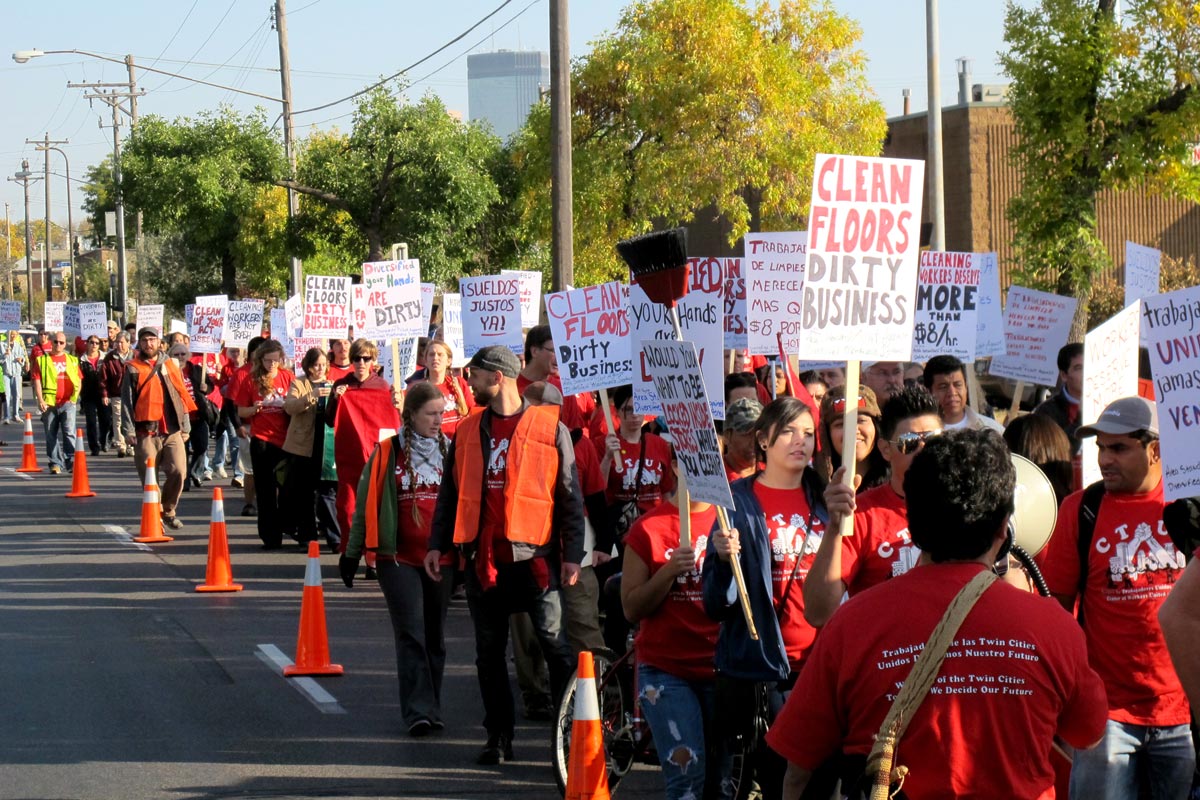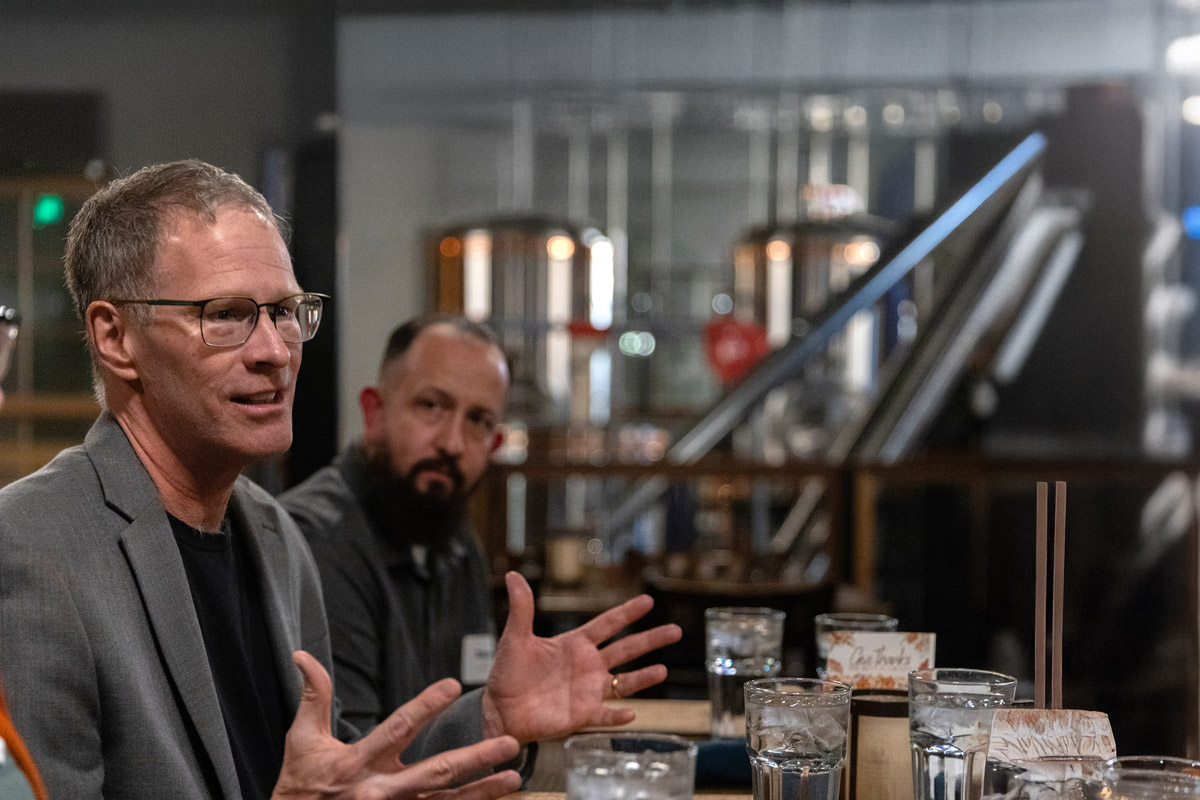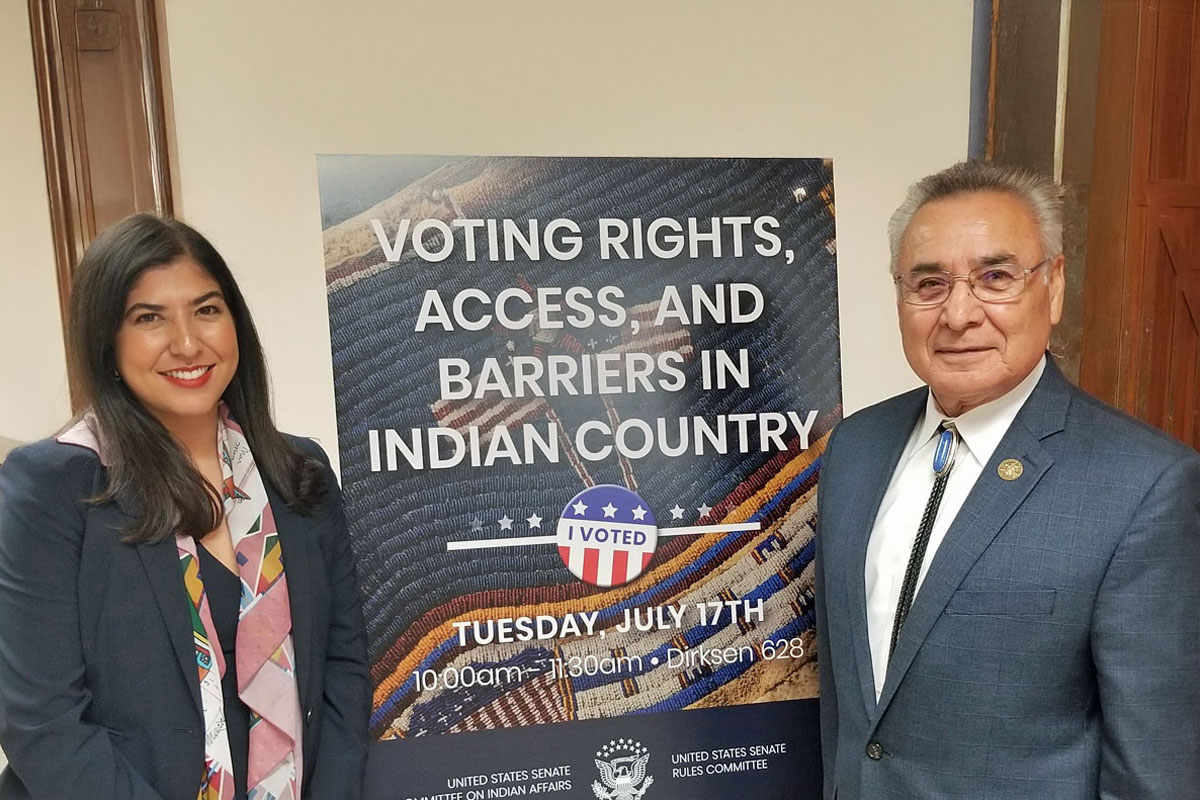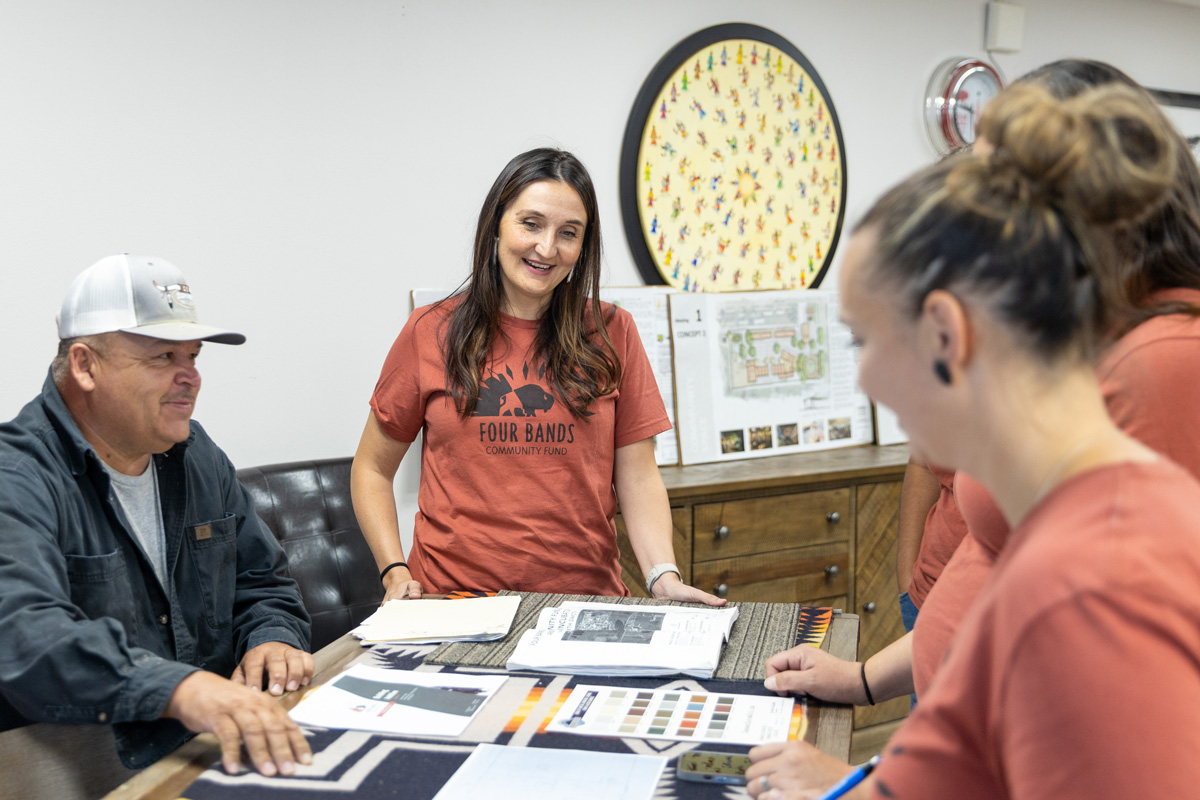Headwaters demonstrates accountability to communities and self-determination and power—key conditions supported by our funding framework.
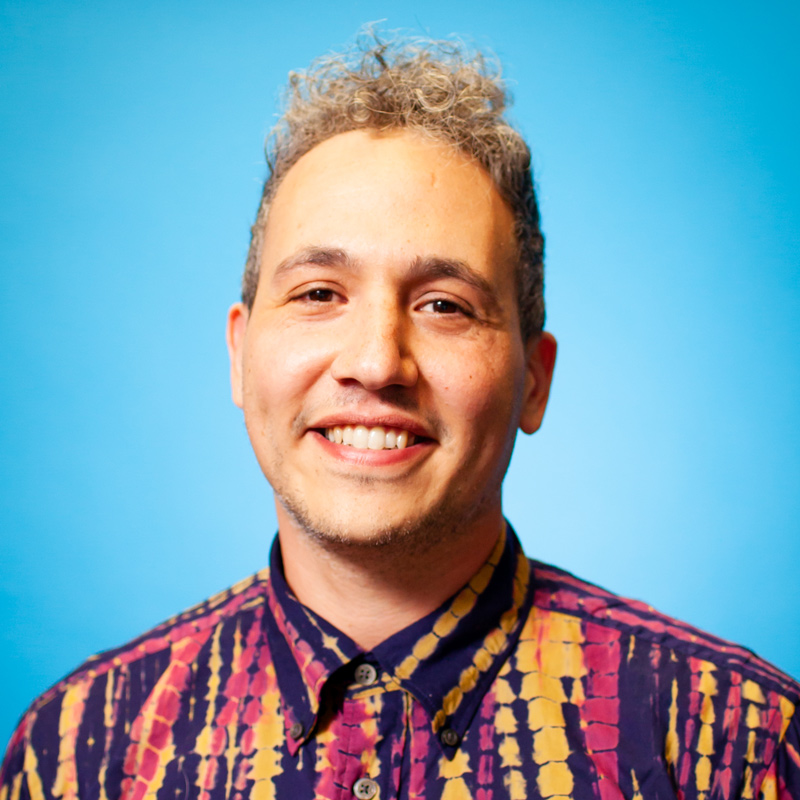
“We are a platform for democratizing giving—for bigger institutions wanting to get dollars directly into communities, and for local people who want to participate (sometimes for the first time) as philanthropists.”
Bilal Alkatout
Co-Executive Director
Headwaters Foundation for Justice
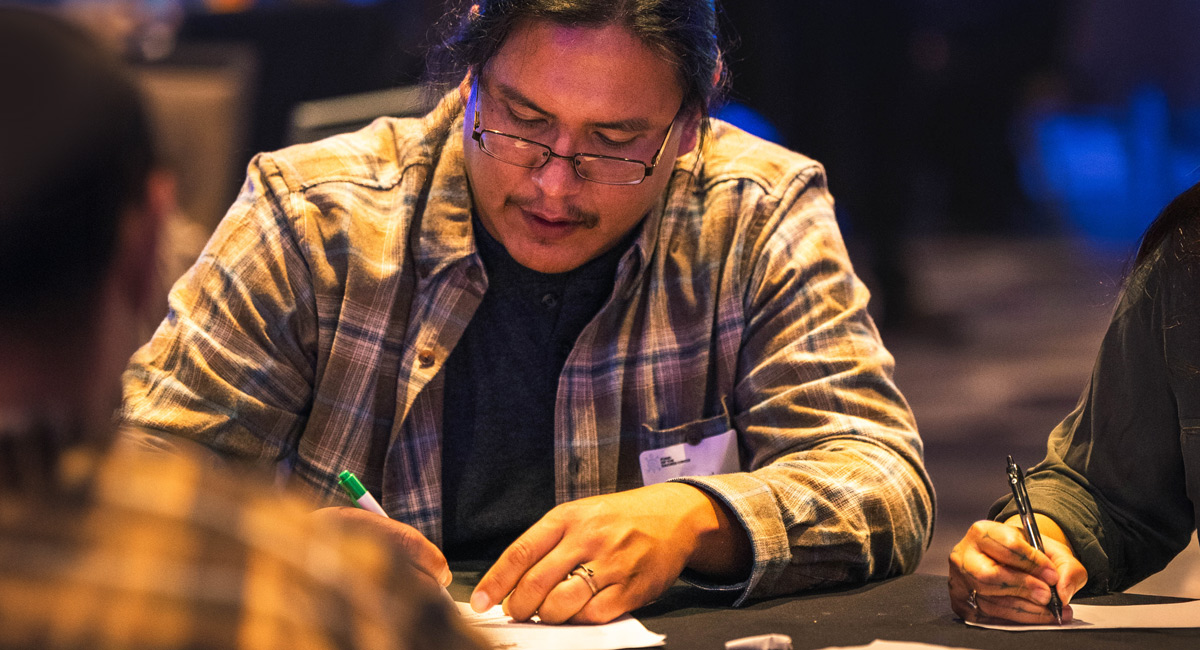
Fund of the Sacred Circle grantees jot down notes at a Headwaters convening centering Indigenous practices to spark connection and catalyze collective strategies. Photo courtesy of Headwaters Foundation for Justice.
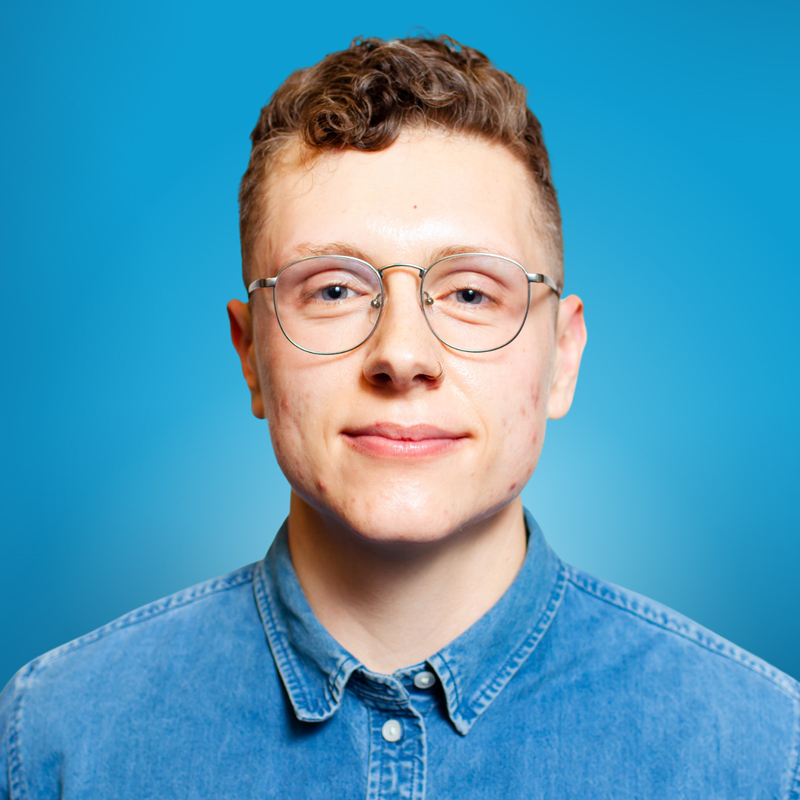
“We meet people where they are, champion their vision, and connect them to the resources they need to grow.”
Ewan Scotto
Director of Communications
Headwaters Foundation for Justice
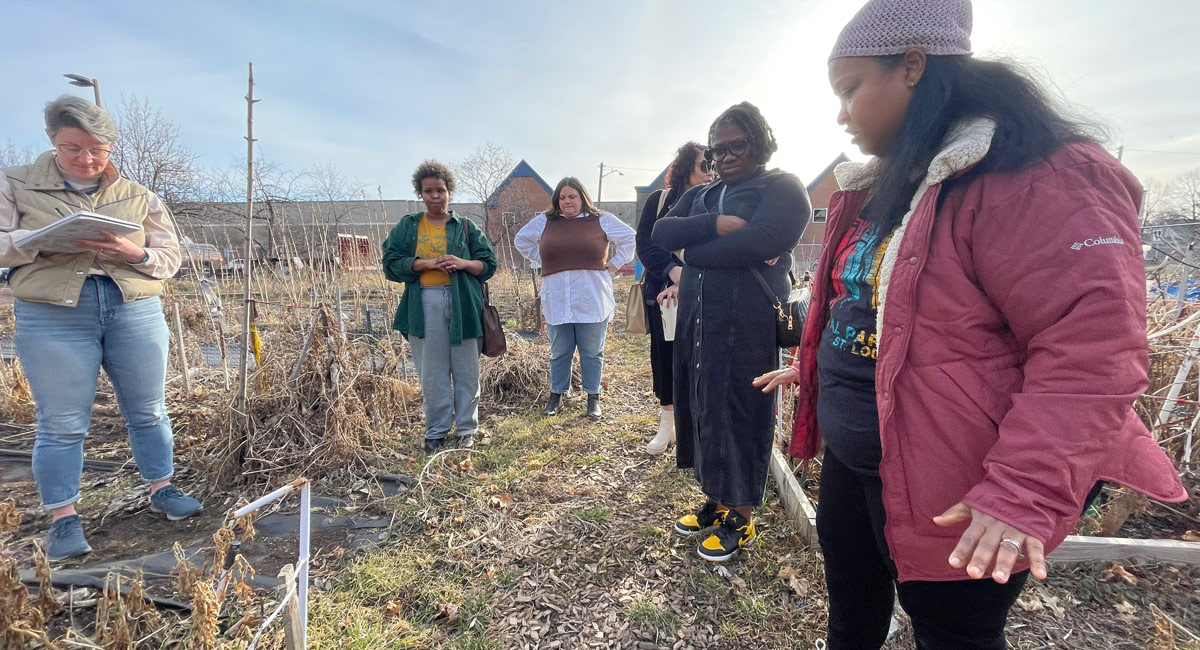
Headwaters staff Kate, Kristin, Veronica, and Abena tour the Somali American Farmers Association (SAFA) urban farm and community garden for Somali elders in Minneapolis, led by SAFA program director Naima Dhore. Photo courtesy of Headwaters Foundation for Justice.
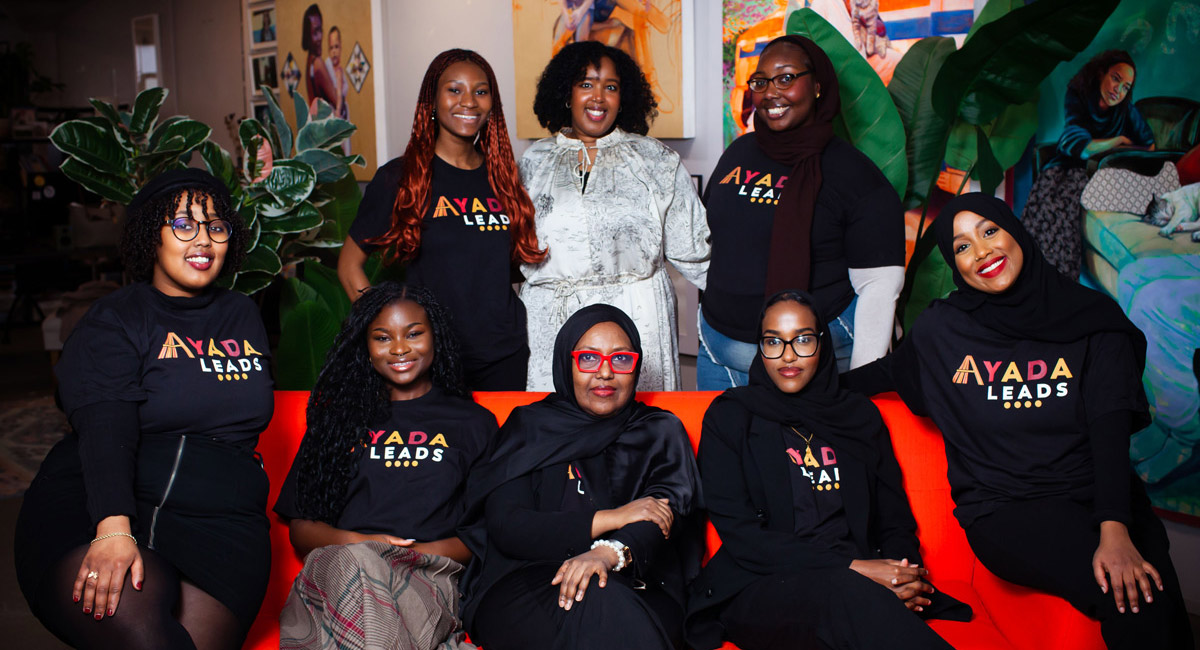
Staff from Ayada Leads help transform the civic engagement and political leadership landscape to include more women leaders of color. Photo courtesy of Headwaters Foundation for Justice.
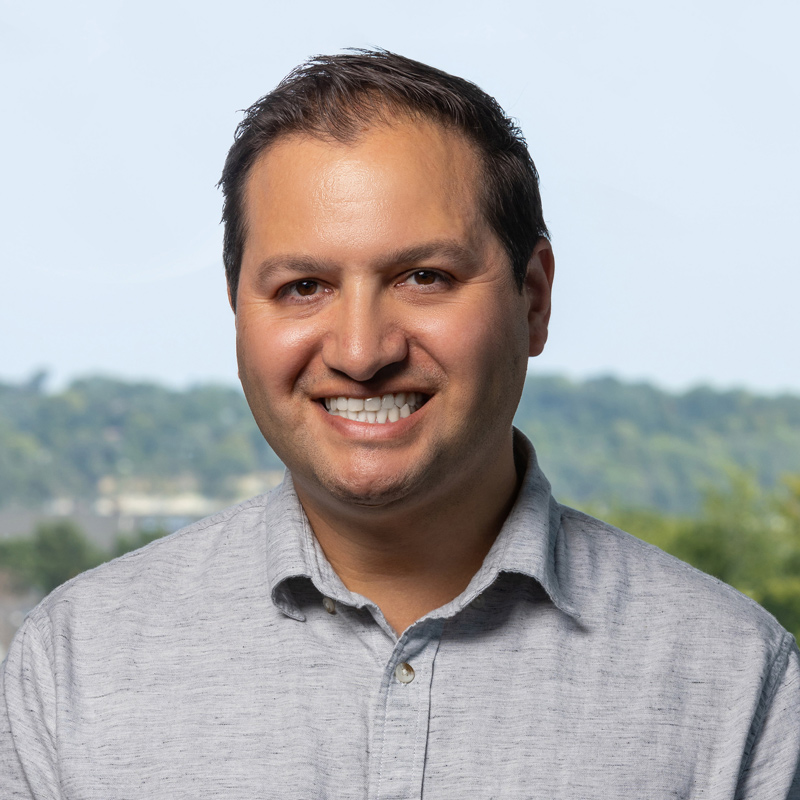
“Headwaters finds organizations that traditional philanthropy often misses. It allows our funding to reach people and places beyond our own networks and knowledge.”
John Fetzer
Program Officer
Northwest Area Foundation
“If you support its [Headwaters’] work, you are doing more than funding one organization. You are supporting a web of community brilliance and possibility.”

